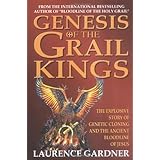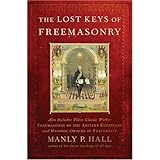
Average Reviews:

(More customer reviews)Gardner explains further why Jesus and the Holy bloodline of the Grail is special in this volume. The Annunnaki gods created Adam, who was the first priest king carrying more of the god's genes than the rest of us. This royal line has supposedly preserved its genetics down through time to the present day.
There is an compelling section on how the Hebrew Bible is largely influenced from previous Sumerian works such as the Epic of Gilgamesh and the Egyptian Book of the Dead. There is also an attempt to explain why the Sumerian was such an anomalously advanced civilization when compared to others at the time. Gardner thinks it's because of the genetic tinkering of the gods with the human line.
Gardner does an interesting analysis on the Moses story in the Bible and comes to the conclusion that he was actually the abdicated king Akhenaton, a half Hebrew, half Egyptian king deposed because of his insistence on imposing a monotheistic god on the Egyptian populace. Various inconsistencies in the Bible are discussed and Gardner comes to the conclusion that it is a corrupted text from the older Sumerian accounts, corrupted for the religious/ political reasons of the Jewish and Christian priesthood.
Gardner stands things on their head, saying that Cain is actually the holy bloodline and not the inferior line of Seth. The Serpent in the Garden is actually the Annunaki god Enki who offers wisdom to humanity as opposed to his brother Enlil, which is the Hebrew god who wants to keep us down. Miriam is not mentioned much in the Bible, but actually she was a prominent religious leader of the Hebrews, but she was shafted by the male priesthood who wanted to get her out the Bible because she was female. Standard blasphemous stuff, you know. Gardner says that our religious beliefs are starting to change because of all the archeological documents that have been discovered which give us a different account of what we have been told traditionally. I suppose it's easy to be fooled with the Biblical stories. People are introduced to them at a young age when their critical faculties are low.
I liked this one better than Bloodline because it didn't get bogged down with a lot of name dropping and intricate genealogies, although these lines are listed and commented on some. I'm really neutral on the revelations. I suppose it will be welcomed by modernists and scorned by traditionalists in the endless chatter of society. I don't know if it will change my personal views much. It was a mind bending trip though. There are actually other authors out there that have looked at archeological evidence and claim that the Bible is accurate, so it comes down to who you want to believe. Everyone has their clever arguments for everything.
And oh yeah, I've read that David Icke has a tape out saying that this guy is nefarious Reptile alien, so who can you trust? Maybe such accusations stem from class conflict or professional jealousy. Both authors cover similar territory and have similar views. Gardner is high born and Icke is well, a former soccer player/hooligan from the projects.
Click Here to see more reviews about: Genesis of the Grail Kings: The Explosive Story of Genetic Cloning and the Ancient Bloodline of Jesus
From beneath the windswept sands of ancient Mesopotarnia comes the documented legacy of the creation chamber of the heavenly Anunnaki.Here is the story of the clinical cloning of Adam and Eve, which predates Bible scripture by more than 2,000 years.From cuneiform texts, cylinder seals, and suppressed archives, best-selling historian and distinguished genealogist Laurence Gardner tells the ultimate story of the alchemical bloodline of the Holy Grail, including: -Hidden secrets of the Tables of Testimony -Anti-gravitational science of the pyramid pharaohs -A history of God and the lords of eternity -Disclosures of the Phoenix and the Philosophers' Stone -The superconductive powers of monatomic gold -A genetic key to the evolutionary Missing Link -Active longevity and the Star Fire magic of Eden






